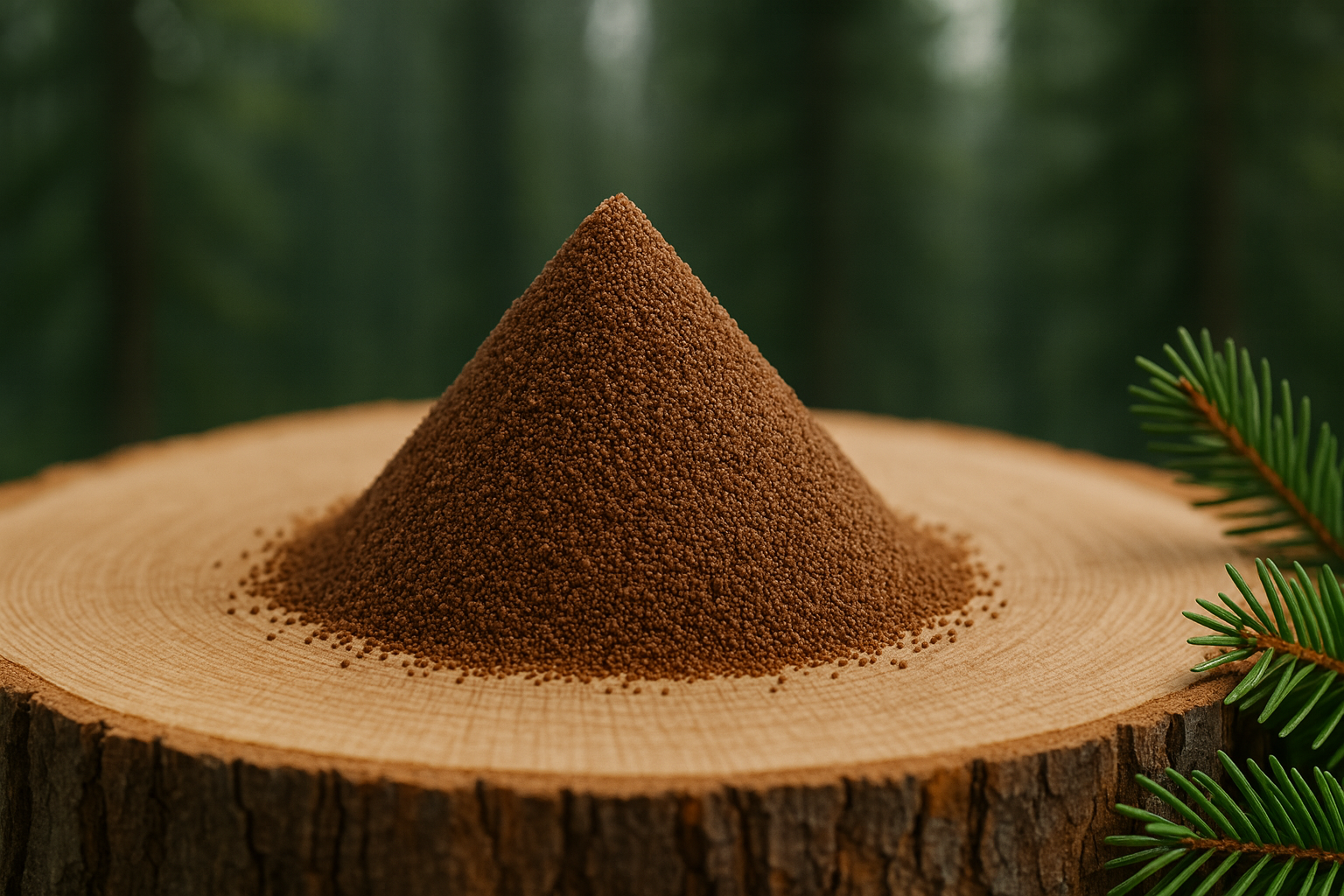bio-based cleaning booster
LignoBrite, an upcycled & bio-circular polymer
LignoBrite is an upcycled natural derived polymer from renewable lignin – designed to boost cleaning performance while supporting circularity and sustainability. Robust even under harsh formulation conditions, it offers a bio-based alternative to synthetic dispersants like polyacrylates.
Where LignoBrite Shines
- Auto Dishwashing: Prevents filming and spotting on glassware and dishes – even in phosphate-free systems.
- Laundry Detergents: Reduces redeposition and fabric greying, keeping clothes fresher for longer.
- Hard Surface Cleaners: Enhances soil release and supports next-time cleanability, helping surfaces stay cleaner between uses.
- I&I Cleaners: Reduces deposits and boosts soil dispersion in acidic and alkaline cleaners.
Why Choose LignoBrite?
- Replaces fossil-based dispersants with a 100% certified bio-based and bio-circular solution
- Non-agricultural raw material grown and produced in Scandinavia
- Enhances overall cleaning efficiency in ADW, laundry and hard surface cleaners
- Demonstrates excellent stability across a wide pH range (1–13)
- Compatible with enzymes, surfactants, caustics, and builders
- Supported by LCA and EPD data for verified sustainability claims
Certifications, labels and data


You could also be interested in:

Kiilto launches world's first laundry powder with Borregaard's LignoBrite
"LignoBrite gives superior cleaning performance while significantly reducing carbon emissions compared to conventional synthetic ingredients"
— Tomi Peltonen, RDI Manager at Kiilto

Carbon Footprint Innovation Award to Borregaard for LignoBrite
Borregaard has received the Household & Commercial Products Association's (HCPA) Carbon Footprint Innovation Award for LignoBrite, an innovative and bio-based product that replaces synthetic polymers in cleaning agents.
Auto Dishwashing
Reduce filming and spotting in dishwasher detergents.
Laundry detergents
Prevent greying and redeposition in laundry detergents.
Hard Surface cleaners
Improve next-time cleaning and keep surface cleaner for longer.
I&I Cleaners
Reduce deposits and boost soil dispersion in acid and alkaline cleaners.
FOOTNOTES:
1 Following European Investment Bank (EIB) definition (The European Investment Bank (EIB) Circular Economy Guide (https://www.eib.org/files/publications/thematic/circular_economy_guide_en.pdf))
2 100% bio-based carbon based on ASTM D6866-18 Method B
3 Biodegradable means that lignosulfonates degrade in the environment along similar pathways to lignin in woody biomass
4 Soldal and Modahl (2019): Environmental analysis of competing products for lignin from Borregaard OR 39.19, Fredrikstad: Ostfold research [now: NORSUS]
5 LignoBrite meets the requirements of a chemically modified natural polymer, derived from renewable resources
.png?width=517&height=128&name=Group%20(2).png)
